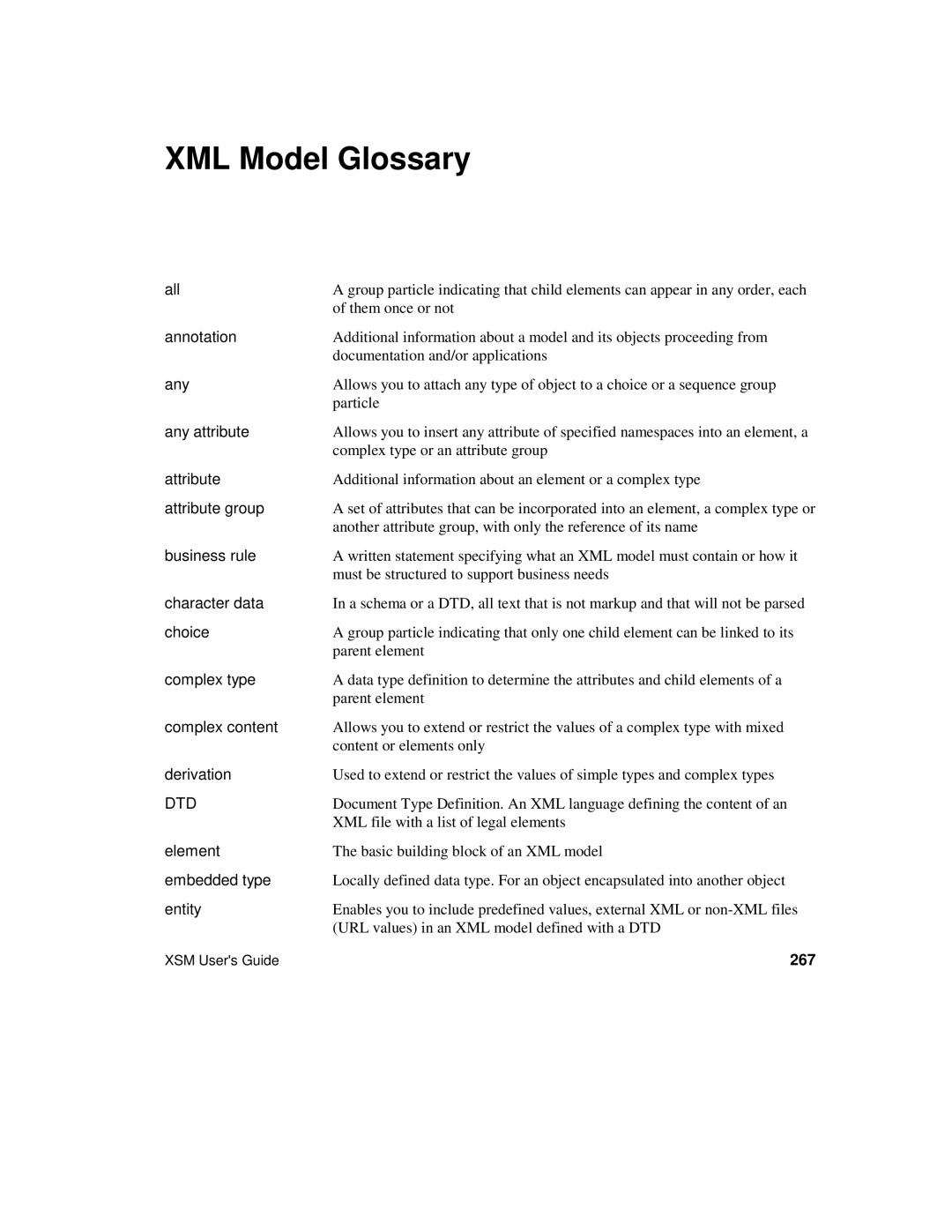XML Model Glossary
all | A group particle indicating that child elements can appear in any order, each |
| of them once or not |
annotation | Additional information about a model and its objects proceeding from |
| documentation and/or applications |
any | Allows you to attach any type of object to a choice or a sequence group |
| particle |
any attribute | Allows you to insert any attribute of specified namespaces into an element, a |
| complex type or an attribute group |
attribute | Additional information about an element or a complex type |
attribute group | A set of attributes that can be incorporated into an element, a complex type or |
| another attribute group, with only the reference of its name |
business rule | A written statement specifying what an XML model must contain or how it |
| must be structured to support business needs |
character data | In a schema or a DTD, all text that is not markup and that will not be parsed |
choice | A group particle indicating that only one child element can be linked to its |
| parent element |
complex type | A data type definition to determine the attributes and child elements of a |
| parent element |
complex content | Allows you to extend or restrict the values of a complex type with mixed |
| content or elements only |
derivation | Used to extend or restrict the values of simple types and complex types |
DTD | Document Type Definition. An XML language defining the content of an |
| XML file with a list of legal elements |
element | The basic building block of an XML model |
embedded type | Locally defined data type. For an object encapsulated into another object |
entity | Enables you to include predefined values, external XML or |
| (URL values) in an XML model defined with a DTD |
XSM User's Guide | 267 |
